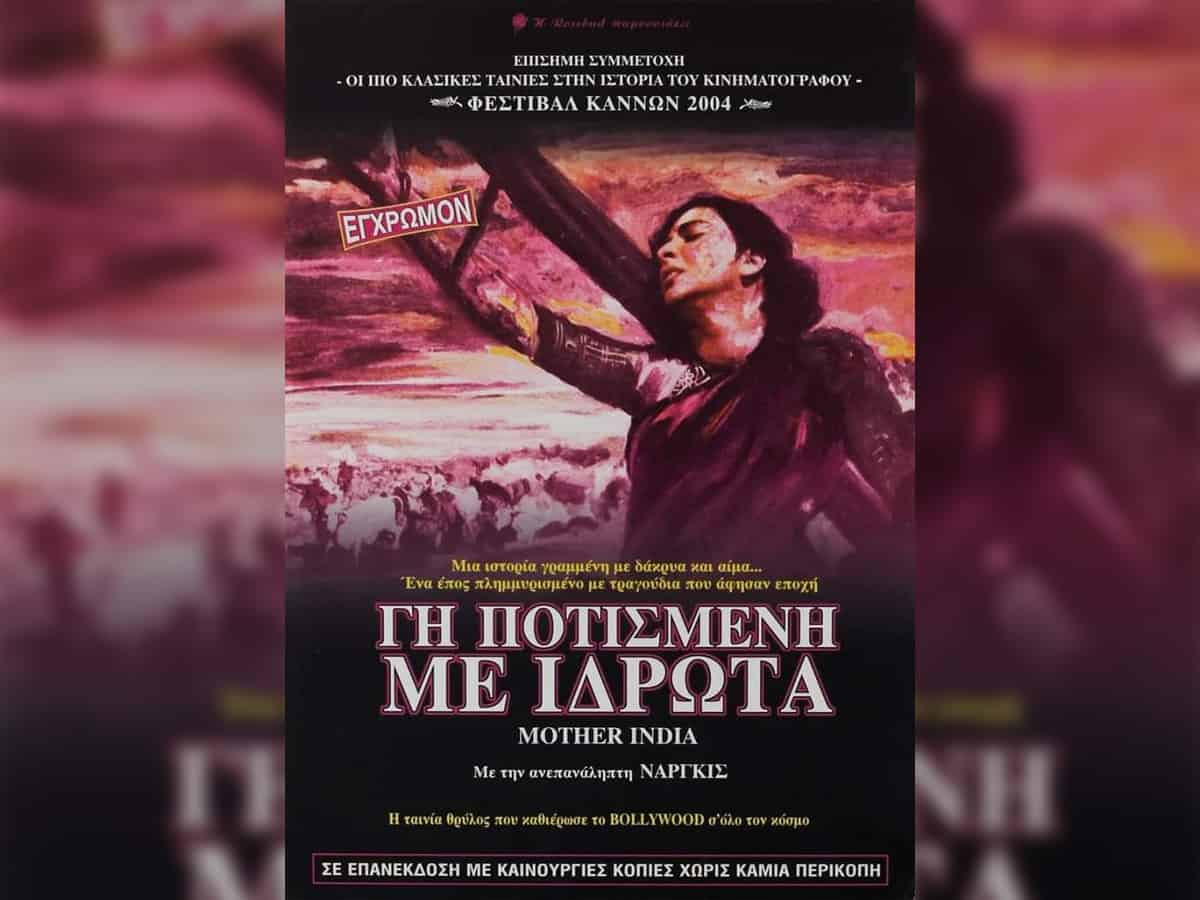
Many centuries ago, the most famous conqueror in world history, Alexander, The Great, arrived on the borders of the Indian subcontinent. His heart was set upon the conquest of this fabled land about whose riches he had heard from his childhood in the stories told by his teachers who included the great philosopher Aristotle.
But by then his vast army was tired. The soldiers had marched across the rocky mountains of Afghanistan and the barren wastes of the Khyber Pass. The temperatures fluctuated from intense cold to searing heat. The soldiers were tired of battling against enemies, harsh weather and disease. They wanted to return to the mild climes of their own land. So with a heavy heart, Alexander turned his eyes homeward and marched back without fulfilling his dream of conquering India.
Instead, more than two thousand years later, something opposite happened. Two Indian actresses conquered the hearts of Greeks with their beauty and charm. They were Madhubala and Nargis, who have been rated by many film critics as being among the most beautiful actresses in Hindi cinema.
At the closing ceremony of the Olympic Games in Athens in 2004, two singers Antonis Remos and Anna Vissi sang a rendition of a popular Greek song called ‘Mandoubala’ which is inspired by actress Madhubala. This song was originally sung in 1959 by the well known Greek singer Stelios Kazantzidis. It was written by the lyricist Eftihis Papayiannopoulou and was composed after the lyricist had watched a film of the legendary Indian actress. Both Madhubala and Nargis were hugely popular with the Greek audience.
The lyrics of the Greek song, which was about a lover’s call for his lost beloved, was based on the lyrics of the song ‘Aa Jao Tadapte Hain Arman’ (sung by Lata Mangeshkar) from the film Awaara starring Nargis. Such was the popularity of the song that it became the first record in Greece to sell 1,00,000 copies. Nargis and Madhubala were the inspiration behind many Greek songs and poems. The lines were always in praise of the beauty and grace of the Indian stars. The roles that they portrayed on the screen also drew a sense of identification among the Greek audience.
This was happening at a time when Greece was undergoing a social upheaval. The Second World War had caused the deaths of thousands of Greeks. Many were displaced from their homes. Much of the country had been destroyed by bombing. Many people were reduced to living in slums and refugee camps on the outskirts of cities like Athens and Thessalonica.
In this situation, when Hindi films were screened with Greek subtitles, they became an instant hit because the audience identified with the sufferings of the characters portrayed on the screens. Mother India directed by Mehboob Khan struck a chord among the viewers. They could understand and sympathize with the character of Radha (Nargis) and her heart wrenching sacrifices that are the essence of the plot of this film.
Other Hindi films too became a rage. Awara, Shree 420, Ghar Sansar and Laajwanti became very popular. The themes and the emotions of these stories captured the imagination of the Greeks, especially those whose lives were beset by a host of problems. But the people also loved the haunting melodies of the Hindi film songs as well as the fantasy that they created.
What struck the Greek audience most about Madhubala and Nargis and the films in which they appeared, was their ability to emote their pain and sorrow but also their beauty and spirit to overcome setbacks. Greek showbiz stars of that period like Stelios Kazantzidis expressed the same emotions through melodies inspired by these Hindi film songs. He said in an interview: “I sing for the poor, the immigrants and the suffering people, who can’t go to the expensive clubs. They regard my music as their gospel.”
Greek musicians and music directors modified the Indian tunes to suit their own tastes and needs. They quickened the tempo, simplified sections that they were unfamiliar with, changed instruments and whenever required they introduced their own string instrument called Bouzouki instead of mandolin. The effect was somewhat like the remix melodies of old Hindi film songs that we hear nowadays.
Reportedly there are about 105 popular Greek songs in existence which are originally based upon Hindi film songs of the past. Incidentally India was among the first countries to produce a feature film based on the life of Alexander. That was the 1941 film “Sikandar” produced and directed by Sohrab Modi. It starred Prithviraj Kapoor as Alexander and director Sohrab Modi himself as Indian King Porus.
These are facts that have been forgotten by most Indians. It was this mix of cultures, a meeting of Indian and Greek ambience and emotions that was briefly witnessed during the closing ceremony of the Athens Olympic Games. It illustrated how two nations separated geographically by thousands of miles, can still have common beliefs and feelings stretching across the boundaries of Europe and Asia.
Abhijit Sen Gupta is a seasoned journalist who writes on Sports and various other subjects.



